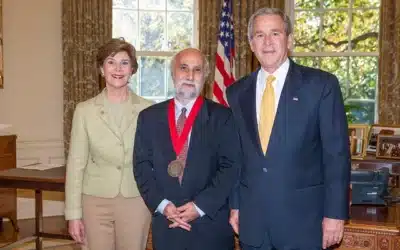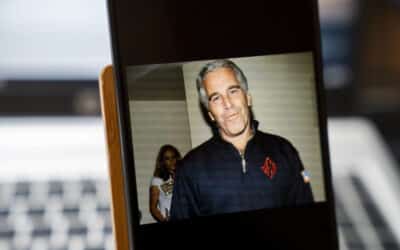Money does not corrupt politics. Politics corrupts money. Politics as we know it is inherently corrupt; it’s the way to select government officials, who then use the legalized threat of physical force, and force itself, to make peaceful people do or not do things against their will. Since that’s so, public problems cannot be solved by yet another measure to restrict people from spending their own momney to support candidates for office or lobby elected officials. At most, it will drive any influence to less-visible forms.
Money in politics is a favorite complaint of populists across the political spectrum. Superficially it seems to be a problem. No one likes that money might count most in determining who is elected and what policies are enacted. Candidates and policies ought to be judged on merit. The popular solution is to strictly limit spending on campaigns, even by independent political-action committees, and to somehow limit lobbying by (some) interest groups and individuals after the campaigns. But those touted reforms seem undemocratic on their face. If in theory democracy is the rule by the people, why can’t the people spend their money to influence “their” government? Sure, some people have more money than other people, and strongly motivated concentrated groups have an advantage over the unorganized masses, but how can that be changed without violating liberty? Maybe the focus ought to be on what government has the power to do.
Campaign and lobby finance is not as simple as the advocates of control insist it is. This is not to say that money has no relevance ever. Let’s remember that the essence of government is to dispense wealth taken under threat of force from its producers. Voluntary exchange is not its modus operandi. This is so even when the government does what might be construed as generally welfare-enhancing, such as building roads or defense. As H. L. Mencken wrote in A Carnival of Buncombe, “[G]overnment is a broker in pillage, and every election is a sort of advance auction sale of stolen goods.” Any power the politicians have to help their friends at the expense of others rests entirely on the power to tax.
On the other hand, the influence of money on politics is a complicated matter and easily overestimated. Considering the size of government largesse — the federal government will spend $5.8 trillion this fiscal year — economists have wondered why so little money is “invested” in politics. “The discrepancy between the value of policy and the amounts contributed strains basic economic intuitions. Given the value of policy at stake, firms and other interest groups should give more,” write Stephen Ansolabehere, John M. de Figueiredo, and James M. Snyder Jr., drawing on research by Gordon Tullock. (This is also helpful.) Campaign-finance restrictions don’t solve the puzzle.
The reason interest groups and wealthy individuals do not give more could be that too many other things garble the connection between cost and benefit. The joints are loose. Safer investments are available. Ask some wealthy aspirants to the White House, such as former New York City Mayor Mike Bloomberg and former Texas Gov. and Treasury Secretary John Connally, who in 1980 famously spent $500,000 of his own money in his quest for the Republican nomination and bagged one delegate.
Outspending an opponent, or having wealthy supporters, is no guarantee of success. Hillary Clinton knows. A candidate still has to appeal to inscrutable voters in the center under shifting circumstances, and that process has many moving parts. The same goes for lobbying. Money can get someone access, but before a measure is enacted, Its potential sponsors will need confidence it won’t backfire at the next election.
We should also ask whether people with money corrupt politicians or do people with money donate to politicians who already agree with them. The deep pockets might put money into primary candidates, but there’s no guarantee of success. Small donations can add up and free media can make a difference.
It’s easy to fool the voters, to be sure, but there are limits, especially when countervailing winds blow. Rich individuals and organizations on the other side of an issue are also free to spend their money on candidates and lobbying — and they do. The progressives’ “good guys” can outspend the so-called “bad guys.” Alex Epstein, author of Fossil Future, notes for example that the anti-fossil-fuel lobby, which includes oil companies that are hedging their bets, far outspends the few defenders of fossil fuels. Moreover, bashing big business (with justification or not) can get politicians grass-roots donations that make up for the lack of interest-group donations.
The much-hated 2010 Citizens United v. Federal Election Commission ruling empowered unions and other incorporated nonbusiness organizations, as well as for-profit corporations, to spend money independently in support of candidates. A ban on political spending, the Supreme Court, said, is an unconstitutional ban on speech, which it certainly is. Critics of this ruling often say that corporations should not be regarded as persons. That’s sophistry. Corporations are associations of persons with free speech rights.
Then there’s the problem that politicians have the power to extort donations from the so-called privileged. Some years ago a book called Money for Nothing: Politicians, Rent Extraction, and Political Extortion, by Fred McChesney, showed how politicians can attract support from businesses merely by publicly talking about the need for new regulations. In effect, the politicians say: “Support me or I’ll ruin your business.” How much money do businesses donate in self-defense? Departures from the free market harm consumers too, so this is hardly something to welcome.
Another consideration is that even though Congress has repeatedly passed restrictions on campaign finance, many people think it has not been enough. This is despite the obvious point that limits protect incumbents since challengers are often less well-known. I suspect that the futile restrictions are intended to pave the road to exclusively tax-financed campaigns. Wouldn’t forcing people to pay for campaigns violates freedom of conscience?
But the deepest problem of all is that the advocates of stricter controls want to eat their cake and have it too. They say they want democracy but not rule by the people. These advocates say they trust the voters to elect the right politicians but really think the voters are simpletons who vote according to how many times they’ve seen an ad on television.
Here’s the knockout punch to the money critics: if they really don’t want money to influence politics, they should favor prohibiting the government from dispensing favors of any kind, full stop. No one takes their money to a boarded-up shop.
If voters are merely puppets of big spenders, then maybe democracy isn’t all it’s cracked up to be. In fact, people face perverse incentives in the political arena (stemming from the impotence of any one vote and the dispersion of costs) that they don’t face anywhere where an individual’s decisions are decisive and costs are fully borne. Thus we’d be better off shrinking the political arena as much as possible.
































